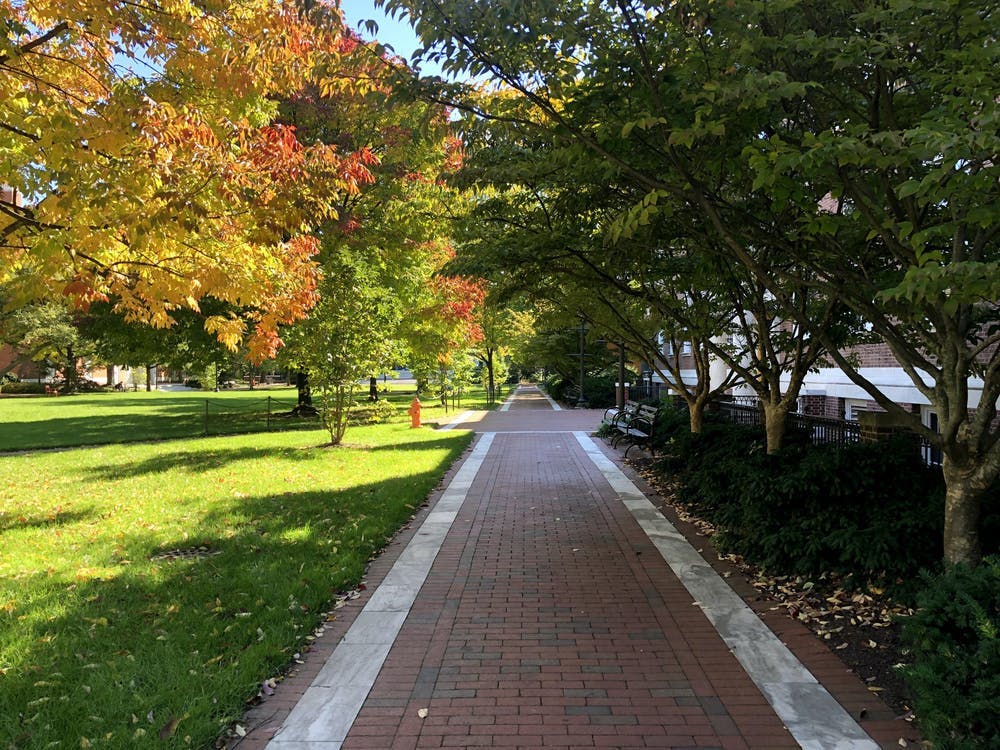As a new college student, it’s exhausting to encounter article after article with titles such as “The 10 worst college majors to choose if you want a high-paying job,” “The 15 most useless college degrees” and “The college majors that are worth it.” These rankings — based on factors such as unemployment rates, average salaries and returns on investment — are sometimes held as absolute truth by self-proclaimed college or career experts, such as Siôn Phillpott. On social media, people perpetuate the idea that college is a waste of time and money for most areas of study. The myth of the “useless” major needs to be reevaluated.
A common misconception is that the journey from college to the workforce is entirely linear. In 2013, the Federal Reserve Bank of New York found that only 27.3% of college graduates were working in a job that directly corresponded to their major. As it becomes more difficult for college graduates to find work, this trend seems to continue.
Similarly, many college graduates are underemployed, working a job that doesn’t require a degree. 34% of all college graduates find themselves in this situation, with the rate rising to 44% among recent college graduates. While it is true that more lucrative degrees in the fields like STEM can make it easier to find work, it's not a guarantee. When three in 10 engineering majors — a highly sought-after degree — struggle with being underemployed in their first job following graduation, it raises the question: What determines if a major is useful or useless, especially when larger-scale economic issues are at play?
The COVID-19 pandemic points to additional uncertainties regarding job security, as millions of people lost their jobs and struggle to find work again, regardless of their qualifications or field of study. No degree guarantees secure, fulfilling employment. When recent college graduates face low odds of finding a job regardless of their degree, then any major will lead to a similar outcome.
Also, it’s frequently overlooked that people go to college for different reasons. While some students seek to develop skills for a stable, high-paying career, others simply want to study their passions regardless of future salary, and some do both. The reason students go to college largely depends on the type of college they attend. The U.S. Department of Education found that, at less selective colleges, the most popular majors included business and health care, while at more selective colleges, students often gravitated toward “useless” majors, such as social sciences like sociology and political science.
At less selective schools, students typically view college more as a financial investment than a place to explore their interests, while the opposite is true at elite schools like Hopkins. This isn’t to say that no one at Hopkins is interested in high-paying careers, but instead that many of us either don’t plan to go directly into the workforce (choosing graduate school first), or we don’t mind lower-paying careers that bring us fulfillment.
Besides different goals, students at more selective schools have a key benefit: Attending a “name brand” school can impress employers more than the actual major chosen. “Useless” majors are not useless, then, because they serve a different purpose than more “useful” ones; people choose to study these fields out of pure interest rather than perceived financial benefits.
In addition, calling majors such as Music, English and Gender Studies “useless” suggests there is no value in studying any of these subjects, which is objectively false. There’s value in understanding rhetorical strategies and the way writers communicate their ideas. There’s value in producing art, which makes our lives more beautiful every day. There’s value in understanding the complex ways traditional ideas of gender have influenced our society and how this intersects with topics of race and sexuality.
These “useless” majors teach skills that are applicable to a variety of jobs, like writing effectively, reading critically and understanding how societal norms influence behavior. Still, even the skills that don’t lead directly to employment are still important. Just because we as a society assign higher value to areas of study with greater earning potential doesn’t mean earning potential is all that matters. For society to function effectively, we need dedicated people working in all fields; discouraging students from pursuing what they are passionate about doesn’t benefit anyone.
As Hopkins students, we need to think critically about unemployment and underemployment trends instead of writing them off as the result of a poorly chosen major. We need to be understanding of the differences in each of our college journeys and encourage our peers to prioritize their own goals over those of society. While money is important, making six figures a year isn’t everything.
Problems in the job market are the result of the state of education and employment in the U.S., not someone studying psychology because they find it fulfilling.
Shelby York is a freshman majoring in Writing Seminars from Owenton, Ky. She is an editor for J.Magazine.

















